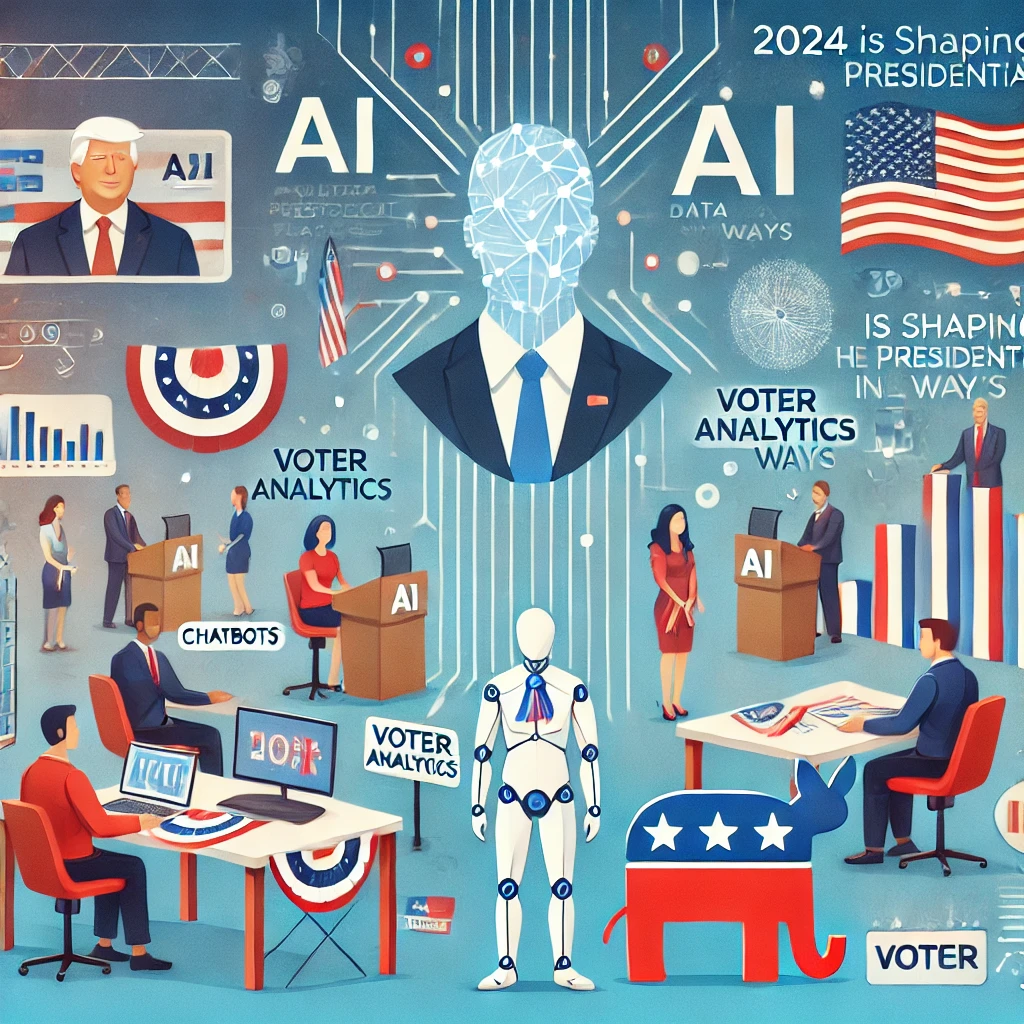As the 2024 U.S. presidential race heats up, artificial intelligence (AI) is playing a more significant role in shaping the campaigns—though not exactly in the dystopian way many experts initially feared. Instead of AI-driven disinformation or autonomous systems hijacking the election process, the technology is being used in more practical, albeit influential, ways. From campaign strategy to voter outreach, AI is becoming a key tool for candidates, helping them connect with voters and optimize their messaging.
The Original Concerns
In the lead-up to the 2024 election, experts voiced concerns that AI would be used to create widespread disinformation, deepfakes, or even manipulate voter sentiment in unprecedented ways. The fear was that AI-generated fake news and hyper-targeted manipulation could distort public perception on a large scale, leading to a crisis of trust in democratic processes.
However, while there have been isolated instances of AI-generated content used maliciously, such as fake videos or deceptive posts, the most impactful use of AI in the 2024 race is shaping up to be much less sinister—and more focused on enhancing campaign efficiency and voter engagement.
AI’s Strategic Role in Campaigns
Both major political parties are using AI to refine their campaign strategies. Machine learning algorithms analyze vast amounts of voter data to help campaigns identify key issues, optimize ad placements, and better understand voter sentiment. These AI-driven insights allow candidates to fine-tune their messaging and allocate resources more efficiently.
For instance, AI can predict which voters are most likely to be persuaded by a particular message and where to focus outreach efforts, such as in battleground states. This type of precision targeting has made campaigns more data-driven, enabling them to maximize impact with fewer resources.
AI and Voter Engagement
AI is also being used to enhance voter engagement. Chatbots, driven by natural language processing (NLP) algorithms, are helping campaigns handle inquiries from voters and distribute key information about campaign events or policy positions. These AI tools provide a more interactive experience for voters, making it easier for them to connect with candidates.
Social media platforms and campaign websites are increasingly utilizing AI to create personalized content, improving the relevance of the information presented to each voter. This tailored approach helps campaigns build stronger relationships with voters by providing them with the content most likely to resonate with their concerns and interests.
Combatting Disinformation
Interestingly, AI is also being employed to combat the very threats that experts feared. Fact-checking organizations and platforms are using AI tools to detect and flag disinformation in real-time. AI algorithms can analyze massive volumes of social media posts, identifying patterns of fake news, misinformation, or deepfake videos. This proactive use of AI helps keep the digital landscape cleaner and more transparent during the election cycle.
Major social media companies are also using AI to monitor suspicious activity, including foreign interference efforts, bot networks, and coordinated disinformation campaigns. By deploying AI to filter out harmful content, these platforms aim to ensure that voters have access to reliable and accurate information.
A Future of AI-Assisted Elections
While AI is playing a significant role in the 2024 presidential race, its influence is largely centered around enhancing campaign operations rather than undermining democracy. Far from the catastrophic scenarios once feared, AI is proving to be a valuable tool for data analysis, voter outreach, and disinformation management.
As AI technology continues to evolve, it is likely to become an even more integral part of political campaigns. However, its use will continue to spark debates around ethical concerns, privacy, and the potential for AI to manipulate voter behavior. For now, AI’s involvement in the election appears to be more constructive than destructive, helping campaigns run more effectively while offering new ways to engage voters.
In conclusion, while concerns about AI’s impact on democracy are valid, the 2024 presidential race demonstrates that AI can be harnessed as a tool for positive, efficient campaign management—shaping the future of elections in ways that benefit both candidates and voters.


